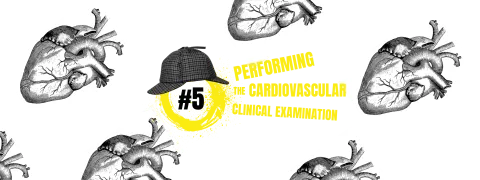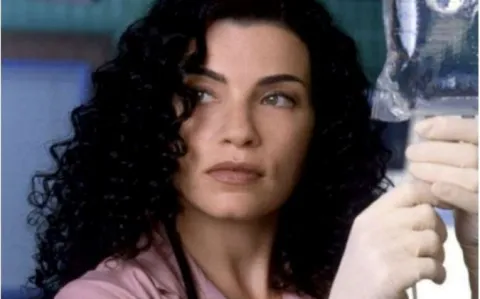
Ms Tick : Good morning, Doctor. Thank you for giving me an appointment at such short notice.
Dr Tock : Don’t mention it. I asked to speak to you alone first to get some background information, and I’ll ask your husband and son to join us later. Now, can you tell me how I can help you ?
Ms Tick : I’m very worried about my son. He’s started behaving very strangely.
Dr Tock : How old is your son, now? Ms Tick : He’s just turned eight.
Dr Tock : So, tell me, in what way is he behaving strangely?
Ms Tick : Well, it all started a couple of months ago, though it may have been earlier, I suppose. We were having dinner and I noticed that he was blinking rather insistently and it seemed to be exaggerated, you know, screwing up his eyes. So I asked him if he was feeling alright, and he said his eyes were stinging. I thought he might have conjunctivitis or something, but his eyes weren’t at all red.
Dr Tock : I see, and did the blinking clear up ? Ms Tick : No, not at all, it got worse, and then he started grunting and pulling these funny faces. Dr Tock : Does this behaviour occur at any particular time ?
Ms Tick : Well, actually, now you mention it, it’s very often in the morning, when he’s getting ready for school, or when he’s tired.
Dr Tock : Does he like going to school ?
Ms Tick : He used to love school, but recently he’s been dragging his heels when it’s time to leave home, and his teacher says he’s become a little disruptive in the lessons and finds it difficult to concentrate. She also said that the other children have started making fun of him because of his grimacing and grunting. It’s very upsetting.
Dr Tock : And have you noticed any compulsive behaviour – repeatedly washing his hands or organizing his toys in a certain way?
Ms Tick : No, I don’t think so.
Dr Tock : Tell me, Ms Tick, do you know of anyone in your or your husband’s family who has had similar problems ?
Ms Tick : Well, my mother-in-law is a bit of a hygiene fanatic; she’s forever hoovering her carpets, but that’s about all.
Dr Tock : It sounds to me like Tourette syndrome, but sometimes, these childhood tics go away on their own after a few months. If they last for a year or more, it will be Tourette’s.
Ms Tick : Oh dear, that’s what I thought.
Dr Tock : It’s not all that rare, in fact. About one person in 500 has some form of Tourette syndrome, though it is extremely mild in many cases.
Ms Tick : Are there any treatments available?
Dr Tock : Yes, of course, there’s cognitive behavioural therapy to help sufferers control their tics. People with Tourette’s say they have sensations that build up just before the tic, like before you sneeze, for example. These are called premonitory sensations, and they say the movement, the tic relieves this sensation. Your son mentioned his stinging eyes.
Ms Tick : Yes I see.
Dr Tock : Very often, the tics increase in number and variety until they reach a peak, generally before adolescence, and then they decline. Just to warn you, Mrs Tick, your son may start saying some rather crude swear words at inappropriate times. This vocal tic occurs in only about 10% of Tourette sufferers, so you may be spared. One very important thing to remember is that the syndrome does not affect intellect, though it can be associated with attention deficit hyperactivity disorder. I think it would be a good idea to ask your husband and son to join us now, and we can discuss care, etc. in due course.
Jean-Pierre CHARPY, Philip BASTABLE, Didier CARNET, Professeurs d'anglais médical à l'université de Dijon

Exercise 2. Can you translate the examples of physical and vocal tics below:
Examples of physical tics include:
- blinking
- eye rolling
- grimacing
- shoulder shrugging
- jerking of the head or limbs
- jumping
- twirling
- touching objects and other people
|
Examples of vocal tics include:
- grunting
- throat clearing
- whistling
- coughing
- tongue clicking
- animal sounds
- saying random words and phrases
- repeating a sound, word or phrase
- swearing
|
Exercise 3. Read the text below and try to find the rude words for which only the first letter has been given.
A brief historical background
Tourette syndrome is named after Gilles de la Tourette (1857-1904). He was Doctor Charcot's senior resident at the Salpêtrière hospital in Paris, and a f------ good one at that. When the famous French neurologist asked him to study patients with movement disorders, Tourette b----- well knew that defining a new condition distinct from chorea and hysteria was no easy task. As he didn't want to be regarded as a c---, he swore that he would define a new clinical category and, in 1885, that m----------- published an account, in Study of a Nervous Affliction, of nine patients with "convulsive tic disorder". It was Charcot who named the newly described condition, characterised by sudden movements and obscene language, you s-- of a b----, "Gilles de la Tourette's illness". Today, the disease is referred to as either Tourette syndrome or Tourette's syndrome. Sadly enough, a few years before dying, Gilles de la Tourette suffered from advanced dementia and was interned. F--- you all!
|













